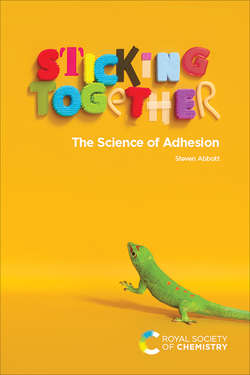Читать книгу Sticking Together - Steven Abbott - Страница 24
На сайте Литреса книга снята с продажи.
2.13 CATALYSTS
ОглавлениеMany polymerization reactions happen rapidly once the reactants mix or an initiating radical is created by heat or light. Some, however, are rather slow. This can be good for those jobs that require a lot of fiddling to put things properly into place. When we want such reactions to go faster, we add a catalyst. Catalysts are molecules that get involved in the polymerization reaction, greatly speeding it up. But after each step, the catalyst emerges unchanged, ready to help speed up the next step. A small amount of catalyst, therefore, can have a large effect on the rate of polymerization.
Sometimes catalysts can be simple molecules like acids – which might be called “accelerators” rather than catalysts. Sometimes the systems require more sophisticated molecules. For example, the polymerization reactions for urethanes (general adhesives) and silicones (e.g. bathroom sealants) are catalyzed by tin-containing molecules. A problem with some catalysts is that they contain elements (such as tin) which carry small health or environmental risks so there is always pressure to reduce or eliminate them. Because catalysts are needed only at low levels, in general the risks from them are small.
For professional workers, fast cures are desirable. For amateurs, speed can be a problem. Different versions of the same adhesive might use different levels of catalyst for different speeds. Or an “anti-catalyst” (retardant) might be added to slow things further.
